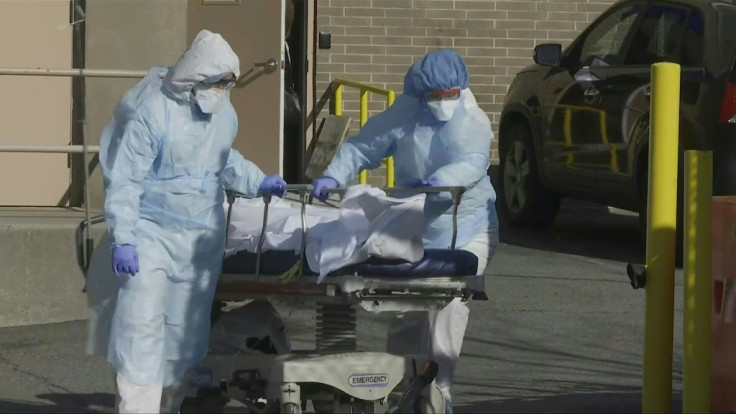Scientists researching genetic reasons why some people may be prone to coronavirus
Scientists preparing DNA pool to identify who is at more risk of contracting coronavirus.
Scientists are racing against time to acquire a better understanding of the fast-spreading novel coronavirus and provide preventive methods. As per the latest update, a group of researchers is shifting their focus and trying to determine whether there are any genetic traits that put some people at more risk than others.
The early trends suggested that elderly people with pre-existing conditions such as heart disease, diabetes, and lung problems are more susceptible to experience severe symptoms of COVID-19 or succumb to the illness. However, the virus has claimed the lives of a few young people who were thought to be healthy. Therefore, the researchers are now trying to analyse which health factors or genetic traits could make people more prone to infections, according to the Independent.
The report suggests that there are several theories that have come up suggesting why the virus impact different people in a different way. As per the report, one of the theories suggests the more the viral load, the severe the infection gets. This could also impact how the infected person's body responds to infection and treatment. Another theory points toward "genetic variations between humans."
Meanwhile, a theory focuses on why some young and apparently healthy people have died of the infection. The report suggests that this could be because of their "highly reactive immune system" which might be under great stress due to "huge inflammation storm" resulting in organ failure.
Dr Edward Parker of the London School of Hygiene and Tropical Medicine explains how a high amount of "viral load—the total amount of virus the person has inside their body—can impact the humans." Parker explains that people with severe symptoms have a higher viral load when it comes to COVID-19 patients. The same is true for Sars and influenza.
"The amount of virus we are exposed to at the start of infection is referred to as the 'infectious dose'. For influenza, we know that that initial exposure to more virus — or a higher infectious dose — appears to increase the chance of infection and illness. Studies in mice have also shown that repeated exposure to low doses may be just as infectious as a single high dose," he goes on to explain.
Therefore, Dr. Parker insists that it is important to restrict all possible exposures to highly symptomatic or asymptomatic patients, alike. And he urges people who are feeling unwell to stringently implement self-isolating measures in order to limit the chances of infecting others.
Meanwhile, the report reveals that scientists are now preparing to study COVID-19 patients' genomes for DNA variations for proof of why some people are more prone to the illness. Such a study is expected to help the doctors identify focus groups that are more at risk and should be protected in any case. This could further leverage researchers' quest for treatment.
So far, coronavirus has infected more than 1,300,000 people around the world and claimed more than 70,000 lives. There is still no vaccine for COVID-19.
The report claims that a huge pool for DNA research around the world is now being prepared, particularly of those who died despite having no pre-existing conditions.
Speaking to Science Mag, geneticist Andrea Ganna of the University of Helsinki's Institute for Molecular Medicine Finland (FIMM) revealed that they aim to compare the DNA of people who contracted the disease but had no underlying disease with those of mild or no disease.
"We see huge differences in clinical outcomes and across countries. How much of that is explained by genetic susceptibility is a very open question," Ganna said.
Ganna, who is leading the study, said that the idea "came quite spontaneously," almost two weeks ago.

As per the report, another study to identify DNA variants is being conducted by Harvard University's George Church under Personal Genome Project. The researchers at the university plan to study samples from people voluntarily sharing their full genome, tissue samples, and health data for research.
© Copyright IBTimes 2025. All rights reserved.





















